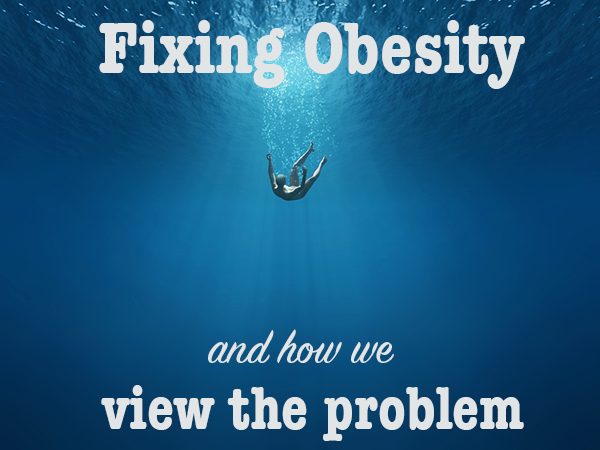At this point, it should be abundantly clear that there are no quick fixes to the obesity problem in America. Though there is plenty to be done to stop or reverse a course of obesity, when it comes to preventing it in the first place, most focus on healthy diets and plenty of exercise.
Of course, there is nothing wrong with either of those; here at DietsInReview, we fully support both. However, we may be missing a solution to the obesity problem. One that isn’t physical in nature, but mental.
David L. Katz, MD, MPH, president of the American College of Lifestyle Medicine, wrote in a LinkedIn post, The Obesity Fix, his belief that the obesity problem can be fixed by a shift in how we think about health and obesity. He also acknowledges change won’t be easy, saying that no one seems to mind when super sugary cereals are marketed to children, or when it’s revealed how some foods are designed to be as addictive as possible.
He believes in order for this to change, people must see health and obesity differently than they do now, in two different ways.
HEALTH IS WEALTH
First, Katz suggests people view health like wealth, and said in his post, “We respect wealth. We aspire to it. We hope to bequeath it to our children. We invest in it, and work for it. We care about it both for our own sake, and the sake of those we love.”
If health was treated more like wealth, it’s possible that there would be more families exercising together, almost in the way that children are trained in the ways of the family business.
Katz also mentions ways people work to be wealthy, such as saving for the future and getting guidance from experts. Both could be used as ways to think about health. Viewing health as a life-long goal could promote healthier lifestyles over quick-fix, temporary diets. Instead of getting health advice from anywhere and anyone, people could rely on the advice and guidance of experts to help them achieve health.
OBESITY IS DROWNING
The second change Katz proposes is to see obesity like drowning. He points out in his post that drowning is treated as a completely legitimate problem that receives full extent of medical care. Drowning prevention is viewed as a personal and public responsibility, and is the main focus instead of drowning treatment.
In his post, Katz said, “If we treated drowning like obesity, we would have no lifeguards at the beach. We would not teach our children to swim. We would allow signage at a shore with notorious rip tides to read: ‘come on in, the water’s fine!'”
“If, instead, we treated obesity more like drowning, we would tell the truth about food. We would not market multicolored marshmallows to children as part of a complete breakfast. We would not willfully mislead about the perilous currents in the modern food supply. We would not look on passively as an entire population of non-swimmers started wading in over their heads.”
There’s no question that something must be done about the obesity problem. By following Katz’s suggestions, new ways of thinking and talking about health and obesity would be opened up. Instead of going at it alone, individuals could find support and guidance along the way. More people would talk about obesity as something to be prevented, not a problem to be solved. It’s a shift from the reactive, to the proactive; and it may be just what we all need.
Also Read:
Leaning In to Get Lean: Meet the Rare Female CEOs in the Diet Industry

